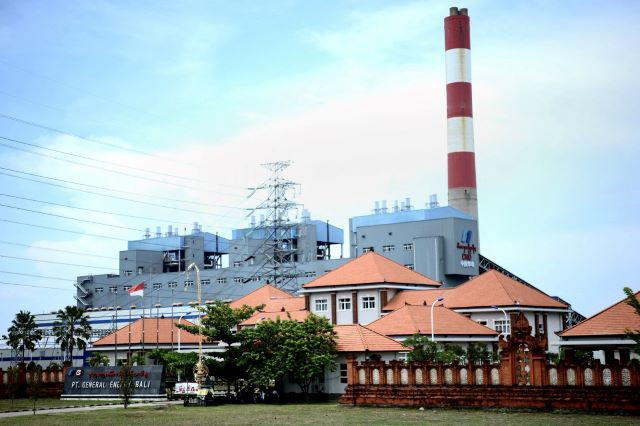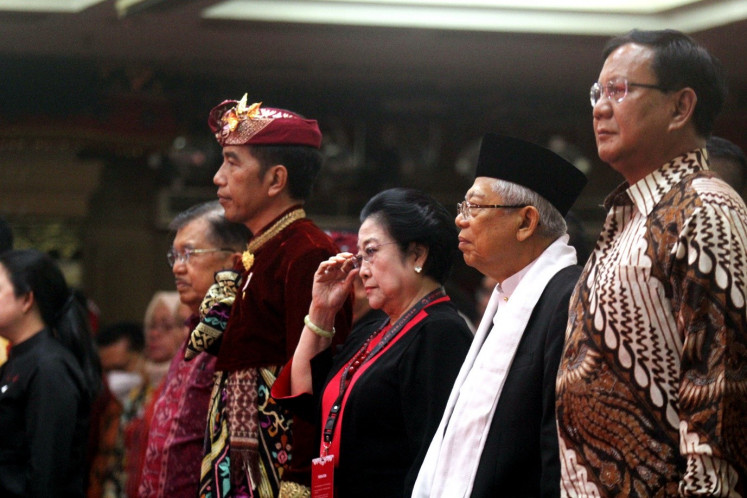Student problems in Australia
As reported by Antara in February, Agus Sartono, attache for education and cultural affairs at the Indonesian Embassy in Australia, raised a complaint against the Curtin University of Technology (CUT) Australia for its negligence in handling Indonesian research students under Technological and Professional Skills Development Sector Project (TPSDP) scholarships
Change Size

As reported by Antara in February, Agus Sartono, attache for education and cultural affairs at the Indonesian Embassy in Australia, raised a complaint against the Curtin University of Technology (CUT) Australia for its negligence in handling Indonesian research students under Technological and Professional Skills Development Sector Project (TPSDP) scholarships.
Many Indonesians scholars studying at CUT faced a lot of problems due to instability in their academic environment such as frequent changes of research supervisors and lack of equipment availability at the university.
It is a brave protest. However, such a protest won't be effective. A lot of factors often occur beyond the university's management. Moreover, a single protest to CUT will not have a wider impact.
Problems faced by students at CUT are also experienced by many Indonesian research students in other universities across Australia. The same problems particularly occur due to the complexity of the research and supervising process versus the problem.
Similar problems have lasted for long time. Interestingly, the attache's complaint emerged when a number of students under TPSDP scholarships, which is directly managed by the ministry of national education, faced that problem. It's not fair, as there are many other students facing the same problems, but they never get attention from the Indonesian government. Moreover, problems with research supervisory teams and equipment shortages are not only CUT problems, but also common in other universities across Australia.
As this is a common problem, the Indonesian Embassy needs to proactively collect data and record how many students face the same problems.
Margison and Considine, in their book The Enterprise University: Power, Governance and Reinvention in Australia (2000), stated that in the last three decades, there have been substantial changes in the higher education management system in Australia, with the so-called enterprise university. They argue that besides a lot of achievements, the enterprise university also comes with some serious problems.
First, most of the university leaders are far too separated from that which they lead, while too much is asked from them.
Second, too often the enterprise university works around and against academic cultures rather than throughout them.
In an enterprise university, academic lecturers are no longer government employees but private workers who work permanently or contracted by the university.
Under this system, every single lecturer has chance but to move to another job when he/she finds a better alternative, either in terms of money or position.
Furthermore, in an enterprise university, a department or a center can be either merged or closed suddenly when they are not productive or fail to generate sufficient revenue.
In these circumstances, therefore, a university can not guarantee that student A will be guided by Prof. A or Dr. B until he/she finishes. The university can not even guarantee that the student will be placed in the same center or department over his/her studies.
The government can take some preventive actions. Like what Malaysian government has done, it will be better if before sending students to Australia (read: overseas), the government should have complete data about the universities around the country along with their reputation. The government may then establish a general recommendation for prospective students consisting of lists of top five university departments for each discipline which should be taken into account (as the student's choice).
A department with an outstanding reputation generally has better academic lecturers, higher stability, more comprehensive infrastructure and good supporting facilities. By placing students in the right place, it is expected that uncertainties faced during the study timeframe can be reduced.
The writer is a lecturer at Jember University and a PhD candidate at the University of Queensland, Australia. He can be reached at joniaji@gmail.com.









